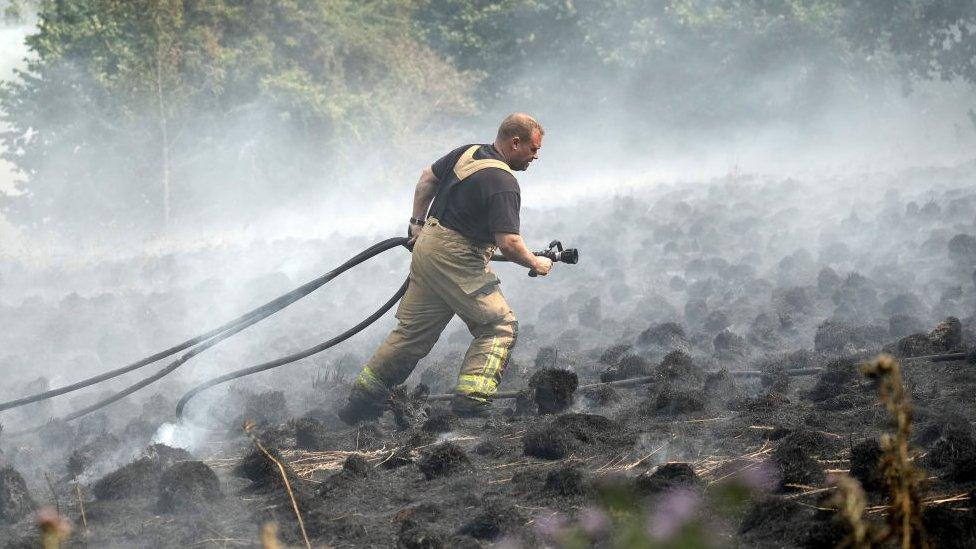UK weather: 2022 was warmest year ever, Met Office confirms
- Published
- comments

Last year was the UK's warmest year on record, the Met Office has confirmed.
The average annual temperature in 2022 was more than 10C for the first time, the national weather service said.
The mean temperature across the 12 months was 10.03C - topping the previous all-time high of 9.88C in 2014.
It means 15 of the UK's top 20 warmest years on record have all occurred this century - with the entire top 10 within the past two decades.
Dr Mark McCarthy, head of the Met Office National Climate Information Centre, said: "Although an arbitrary number, the UK surpassing an annual average temperature of 10C is a notable moment in our climatological history.
"This moment comes as no surprise, since 1884 all the 10 years recording the highest annual temperature have occurred from 2003.
"It is clear from the observational record that human-induced global warming is already impacting the UK's climate."
All four nations set records for heat in 2022, with England seeing the highest average temperature at 10.94C, followed by Wales (10.23C), Northern Ireland (9.85C) and Scotland (8.50C).
A spell of heatwaves in June 2022 led to the UK experiencing its fourth warmest summer on record - and temperatures broke the 40C mark for the first time, leading the Met Office to issue its first-ever red warning for extreme heat.
The record of 40.3C was recorded at Coningsby in Lincolnshire on 19 July.
The hot summer and months of low rainfall also dried up rivers, damaged crops and fuelled wildfires, with an official drought declared in large parts of England.

A firefighter attempts to contain a wildfire that encroached on homes near Sheffield in July 2022
The Met Office said that a UK mean temperature of 10C would have been expected once in 500 years in a natural climate - before humans started producing the emissions responsible for climate change with activities such as burning fossil fuels.
But it said this was now likely to occur every three to four years.


It isn't just the UK that is feeling the heat.
We'll get the figures for global average temperatures next week and last year is expected to have been the fourth or fifth hottest year on record.
And this year is expected to be even hotter worldwide.
That is not just because greenhouse gas emissions continue to rise, it is also because we are expecting a change in a weather system in the tropical Pacific, known as the El Nino.
Last year it was in a cooling phase - La Nina - but this year it will switch into its warming phase, with unusually warm water off the coast of South America.
This typically drives up average global temperatures.


A recent report on climate extremes in the UK found that recent years have seen both higher maximum temperatures and longer warm spells.
That trend is predicted to continue. It is possible that by 2100, the UK could see 40C days every three to four years.
By this point, the Met Office said - with medium levels of greenhouse gas emissions - the 10C average temperature could occur almost every year.
